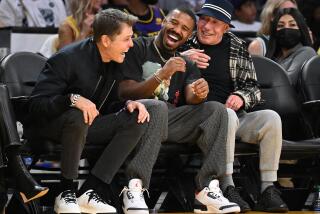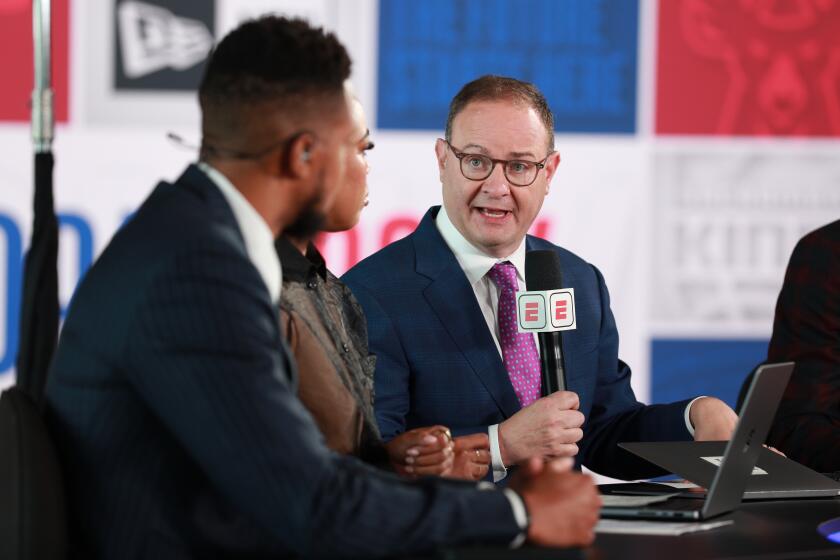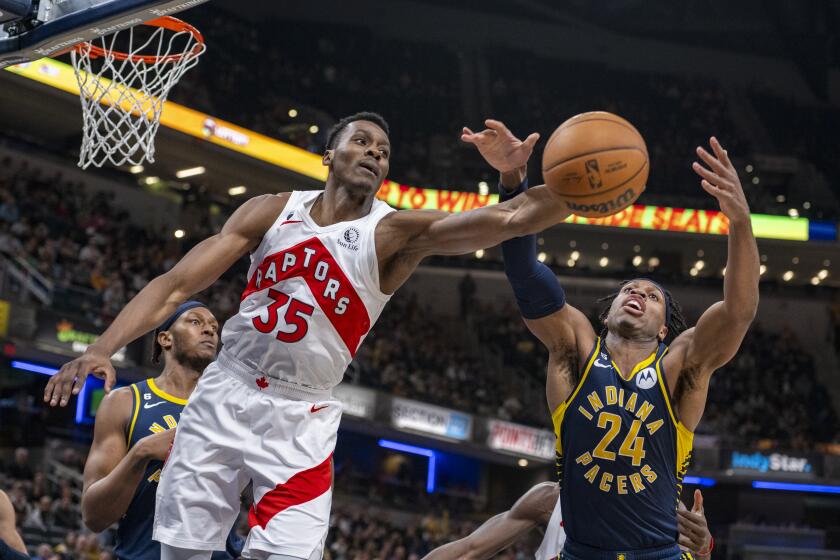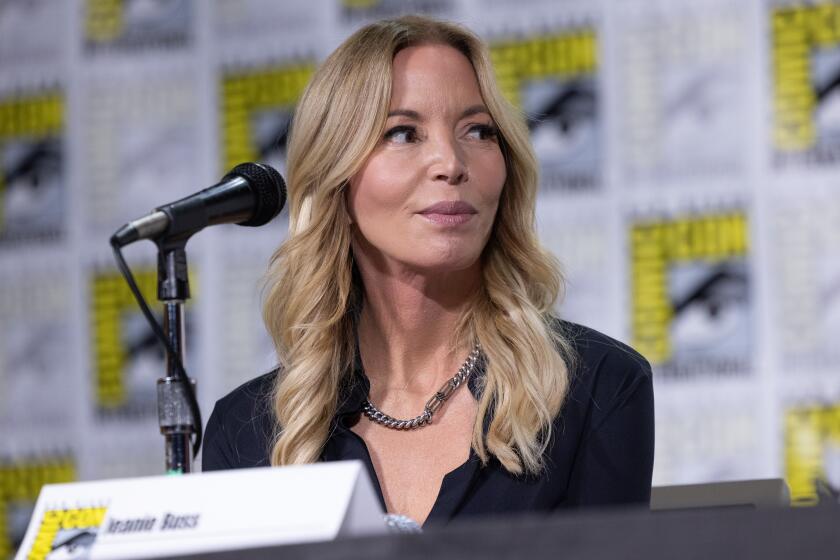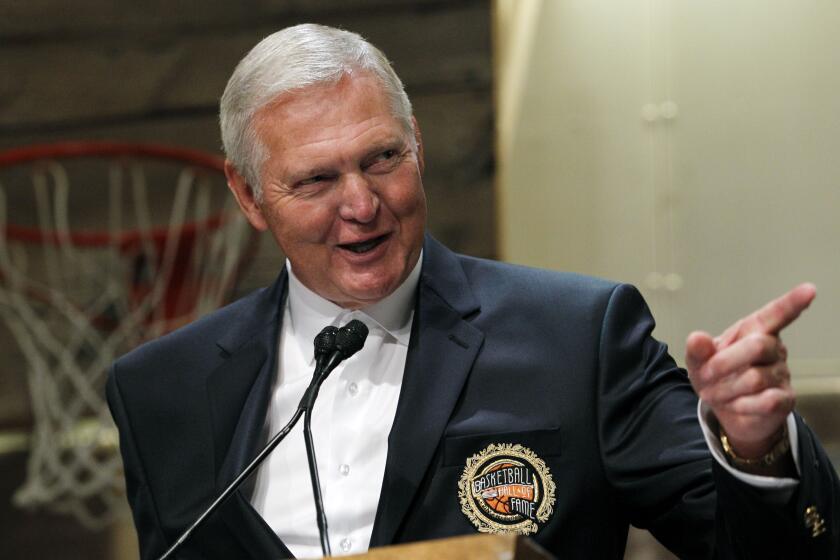Horry Goes On the Offensive
In the end, after all the nagging injuries and all the nagging fans, after he had emerged from what supporters would call a lengthy shooting slump and detractors would call his Laker career, Robert Horry was already confronting his newest problem.
“People will get greedy,” he said.
And expect him to actually exist in the offense, instead of as before, when he seemingly ranked as an option just ahead of a turnover. To do what he has been doing the last six weeks, rarely with better results than he had Sunday afternoon, for the next six weeks. They would even settle for his doing it occasionally the next four weeks.
“It’s nice to make other teams respect you more,” he said, continuing to downplay the possibilities. “That’s about it.”
Not to the Lakers, it isn’t. Horry as an offensive weapon, even if just a small one, would become another boost for a team that averaged more points in the regular season than at any time in the last three seasons and has already scored 104 and 108 points the first two games of the playoffs. Never was this more evident than on Sunday.
The Lakers have a 2-0 lead over the Portland Trail Blazers, and the chance to finish the sweep tonight as the best-of-five series shifts to Portland’s Rose Garden, largely because of him. At the very least, the Lakers took control of the game, and the first-round matchup because of Horry’s third quarter, when he made all five shots, one a three-point basket, as their two-point edge grew into a blowout and an eventual 108-99 victory.
Horry, the offensive star. Seriously.
That the Trail Blazers continued to leave him alone on the perimeter to collapse on Shaquille O’Neal inside was hardly new. Defenses have doubled off Horry all season. But neither was it an original concept that he would make them regret it.
Before making five of eight shots Sunday, and one of three Friday in Game 1, he had finished the regular season by making 56.5% of his tries the final 19 games and 57.9% the last 11. The 43% shooter at the All-Star break, the guy accused of kidnapping the Robert Horry everyone said could provide some air cover for O’Neal when Horry was acquired in January 1997, had, in the end, established a career high.
His 47.6% shooting bettered the 47.4% of the rookie season and offered dramatic improvement from the 43.6% of 1996-97. It also reminded the Lakers of what could be.
“That’s definitely a bonus,” point guard Derek Fisher said. “Any time we get points out of the forward position, even when it’s Rick [Fox] who’s scoring, we’re usually successful.”
Said Coach Del Harris, “We’ve got Eddie [Jones], Nick [Van Exel], Kobe [Bryant] and Rick. Any of those guys are liable to hit three straight threes in your face. It works to his advantage. It does create opportunities for him.
“It’s the same things teams did when Corie Blount and Mario Bennett were in. When they decide not to guard somebody much, that guy needs to give you something. And he did a good job at that.”
For the fourth quarter of the season. For the third quarter of Sunday’s game.
“I just think people know sometimes I have a tendency to pass more,” Horry said.
Indeed, Horry has only been shooting about six times a game, making him an ideal candidate to double off, especially the defenses that prefer to send an extra big man down to slow O’Neal instead of a guard who could only hope to harass.
Except that today, that tendency has become a major reason the Lakers have the Trail Blazers on the run and history on their side. Only five teams have ever come back from an 0-2 deficit in a best-of-five series.
It has become a situation that should look familiar to the Lakers. In the first-round series against the same opponent a year ago, they won the first two contests at the Great Western Forum before going to Portland. They lost Game 3, but won two nights later at the Rose Garden.
Both regular-season visits here this season were losses, 105-99 on Dec. 8 as Isaiah Rider scored 21 of his 28 points in the second half, and 117-105 on Feb. 10, when a 19-0 run in the fourth quarter couldn’t overcome a 31-point deficit with 10:20 remaining. The Lakers were without O’Neal the first game because of his strained abdominal muscle and without the flu-ridden Jones the second time.
More to Read
All things Lakers, all the time.
Get all the Lakers news you need in Dan Woike's weekly newsletter.
You may occasionally receive promotional content from the Los Angeles Times.
